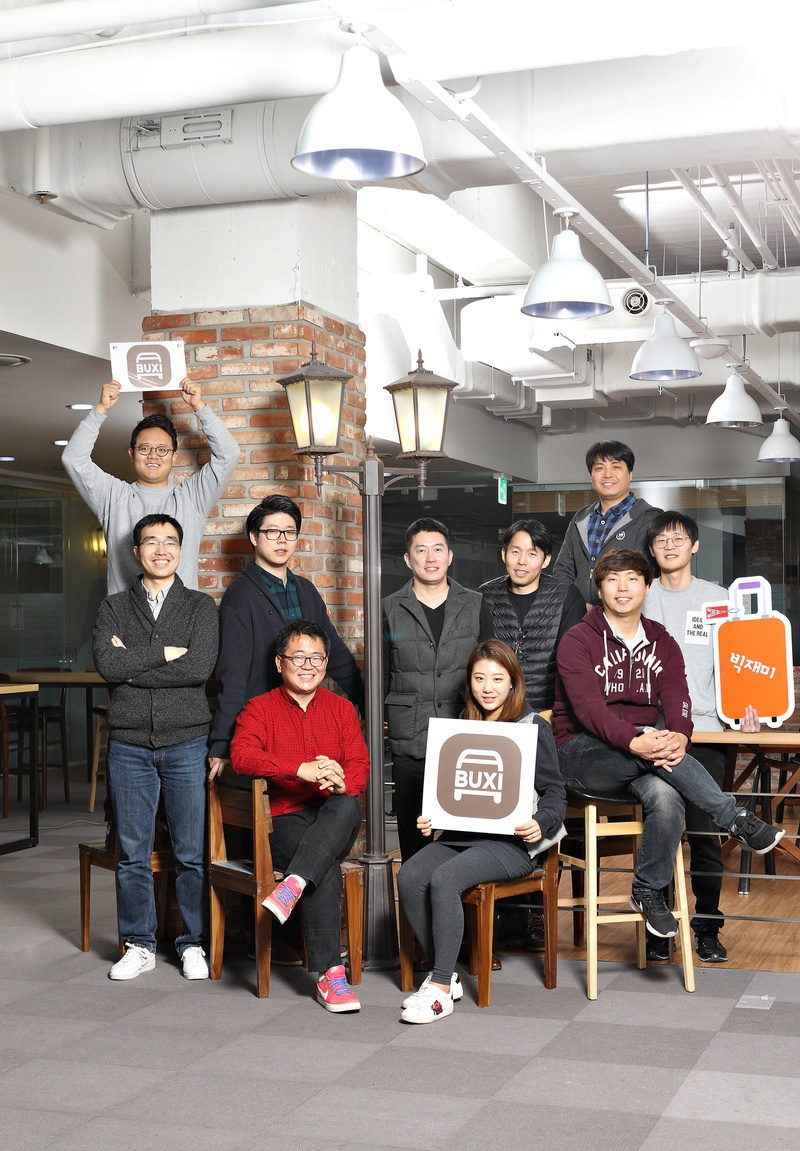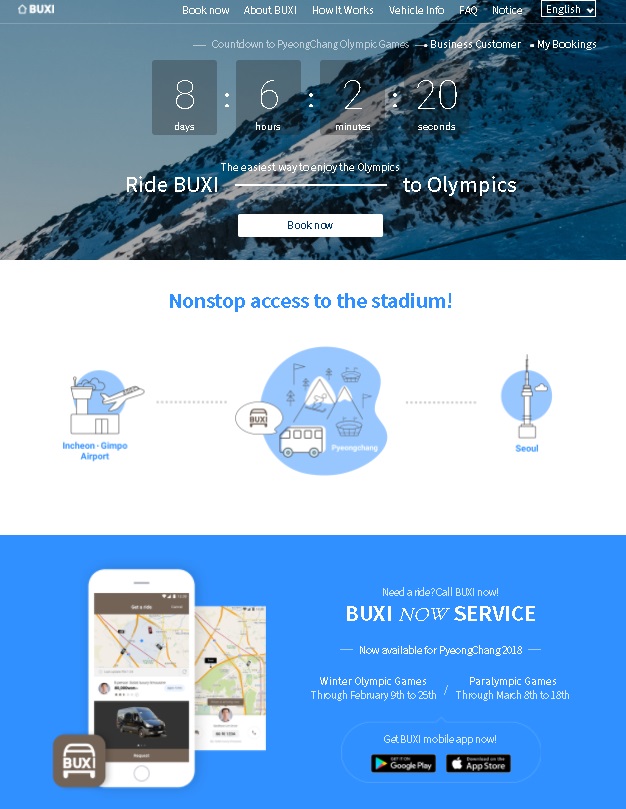 |
|
Buxi President Lee Tae-hui (front left) poses with his employees at the Buxi office. (provided by Buxi)
|
Visitors can use an app to reserve a ride with the new service, which has stops near each stadium
“We have dedicated stops near the entrance to each stadium where you can get on and off the shuttle buses. That means you don’t have to shiver in the cold weather while you’re waiting for the shuttle,” said Lee Tae-hui, 48, president of ride sharing service Buxi (https://www.buxikorea.com). When Lee spoke with the Hankyoreh on Jan. 24, the first thing he talked about was the advantages of using Buxi to get to events in the Pyeongchang Olympic Games, which will be starting on Feb. 9. Buxi is providing on-demand transportation for Go Pyeongchang, the official transportation mobile app created by the Pyeongchang Winter Olympics’ organizing committee. With the app, you can reserve a ride with the Buxi service, which has stops near each stadium. “When you go to the Olympics, a train [KTX], bus or car will take you to a station, terminal or transfer parking lot, from which you have to use a shuttle bus. If you’re carrying a lot of stuff or if you have a group of four or five people, it’s much more efficient both in terms of time and cost to use Buxi, which provides a van and driver,” Lee said. Buxi is a service that sends a bus and driver to transport people who are going in the same direction or have the same goal. This gives family members going on a vacation or coworkers going on a business trip overseas an easy way to get from their house to the airport or vice versa. There’s no need to use the transfer parking lot, and the price for a group of five is similar to using the airport limousine bus. Up to five people can ride in one van, and the van must be reserved in advance on the app. The cost of the ride, which is based on distance traveled, is divided among the riders. For example, a Buxi ride from Yeouido, Seoul, to the Pyeongchang Olympic Stadium would cost 200,000 won (US$186). A single passenger would have to pay the whole fare, but five riders would only have to pay 40,000 won (US$37) each.
 |
|
The website for Buxi displays a countdown to the Olympics and contains English information for how to use the ride sharing service. (taken from www.buxikorea.com)
|







